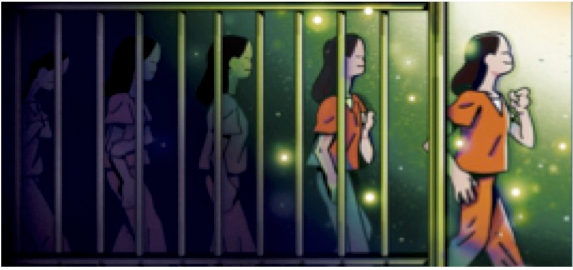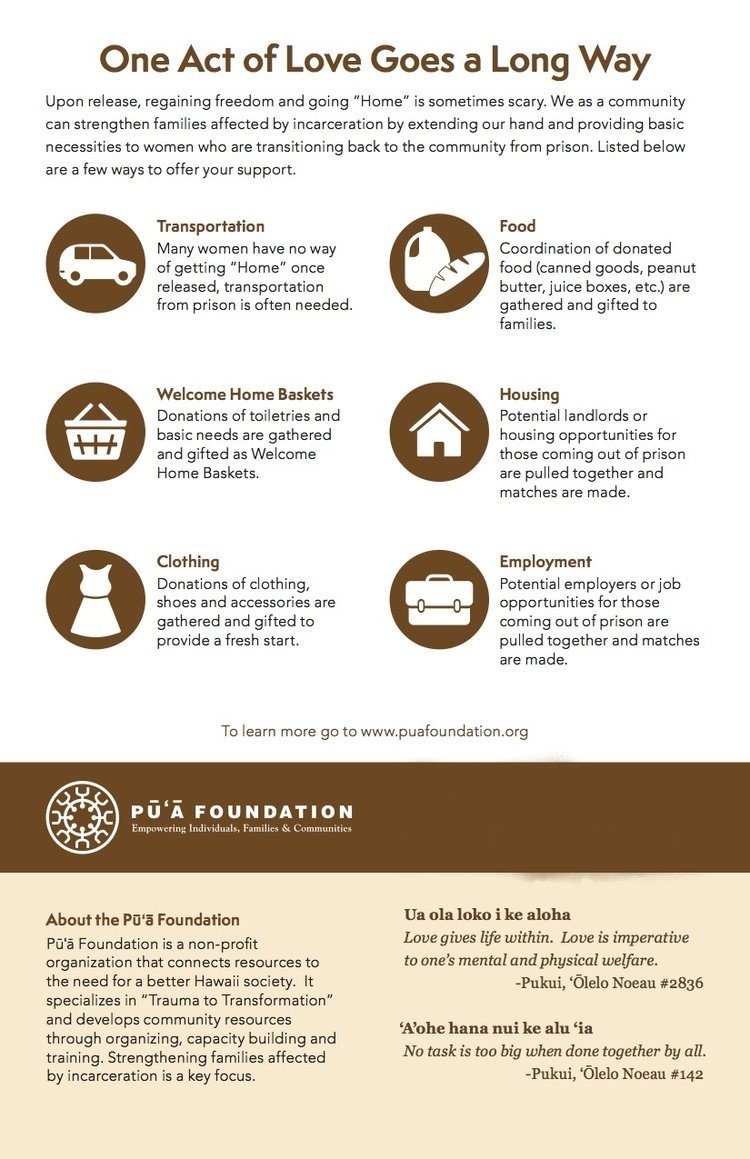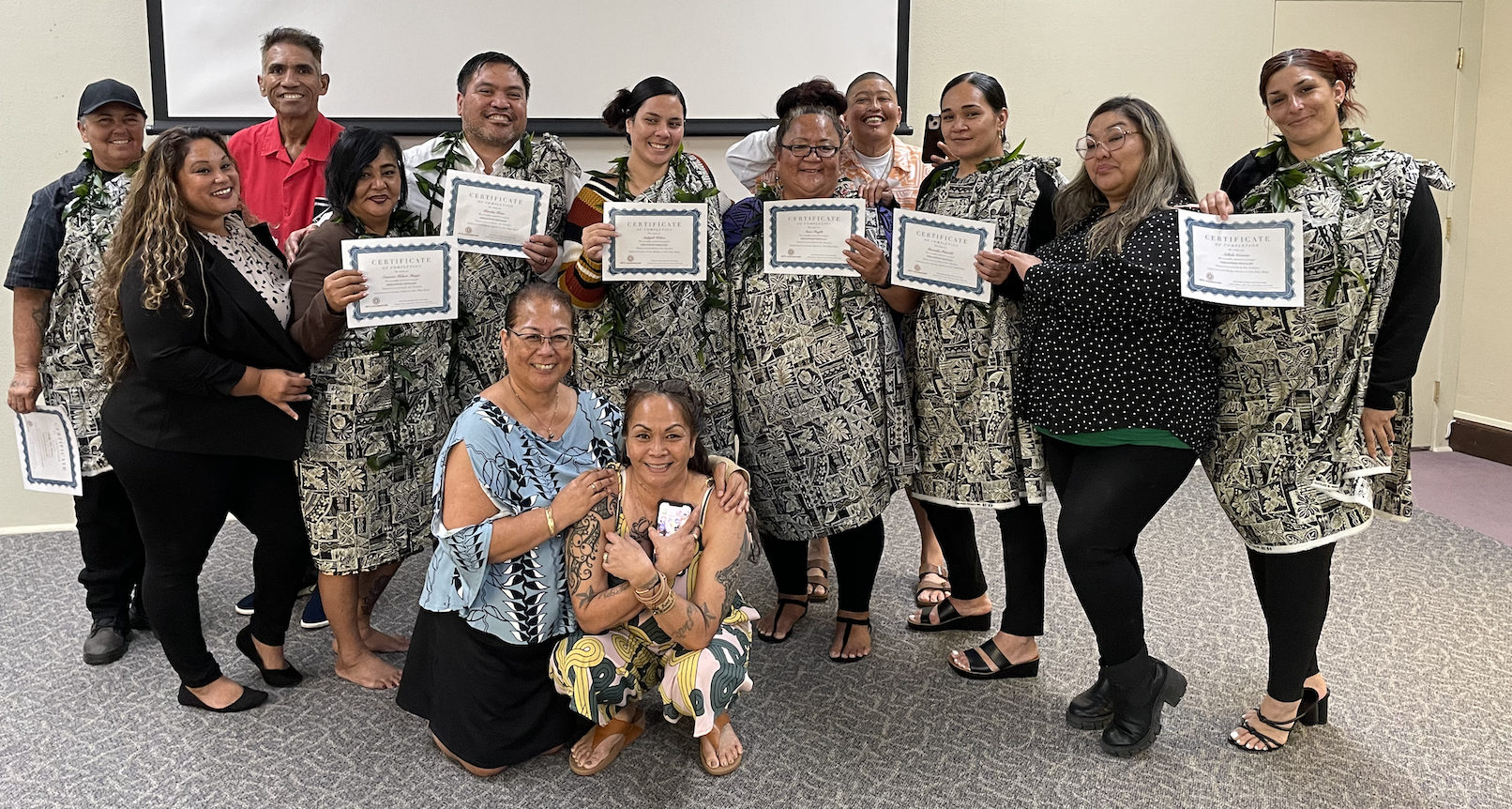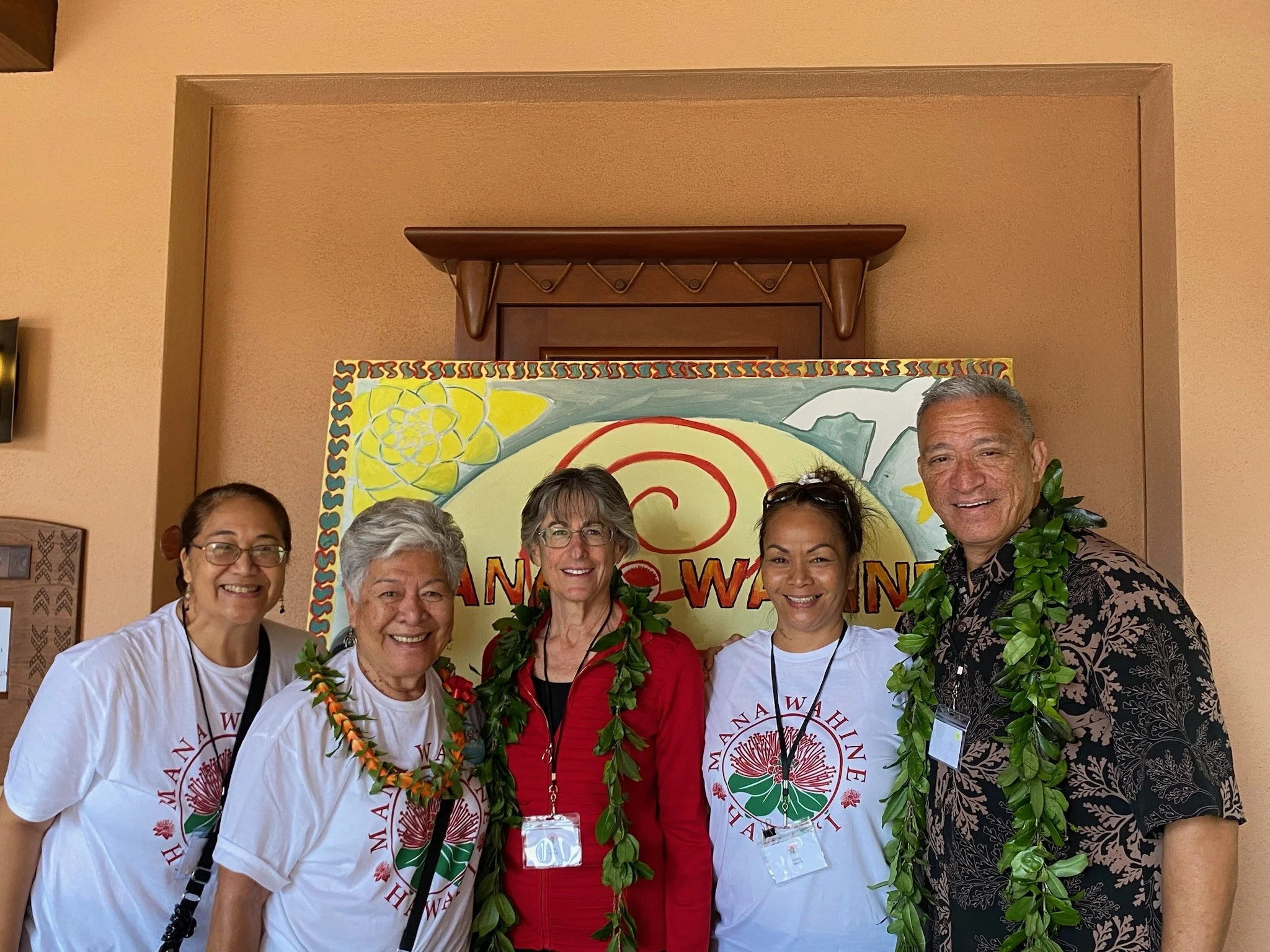
Trauma to Transformation, Incarceration to Independence
Aloha Kākou - Mahalo for Visiting Our Site!
Pūʻā Foundation
We are a 501(c)(3) non-profit created in 1996. Driving ‘Trauma to Transformation’ programs for justice-involved women, girls & their families, especially, Hawaiians. We are also proud stewards of the Punahoa Heritage Forest.
Recovering from trauma can be challenging, but recovery is possible. Our strategy to support women/girls/families, especially Hawaiians, is:
1) we start inside the prison or facility pre-transition, then connect resources post-transition - creating a seamless continuum of care;
2) we have established key strategic public/private, faith-based & community partnerships, &;
3) we incorporate peer support as a key trauma-informed care element - See more about our Peer Support Kōkua Project
Background: We’ve been working with the Women’s Community Correctional Center (WCCC) since 2007; we were on the leadership team for the Trauma Informed Care Initiative at WCCC - 2011 & 2012; we led the Trauma Informed Care Initiative at Family Court, involving Kapolei Juvenile Detention Center, Hawaii Youth Correctional Facility & Home Maluhia Shelter - 2013; we’ve been working at the Federal Detention Center since 2016.
Pūʻā Convened HI Women Specific SAMHSA SIM Mapping Workshop
STRATEGY: Initiate A Peer Support Workforce That Is Applicable For All Intercepts Areas
Pūʻā Foundation convened a cross-system group of criminal justice, behavioral health, and community stakeholders from Hawaii for a Sequential Intercept Model (SIM) Mapping Workshop of the Substance Abuse Mental Health Services Administration (SAMHSA).
SIM Mapping Workshops have three primary objectives: I - The development of a comprehensive picture of how people with mental and substance use disorders enter and move through the criminal justice system along six distinct intercept points: (0) Community Services, (1) Law Enforcement (2) Initial Detention and Court Hearings, (3) Jails and Courts, (4) Reentry, and (5) Community Corrections. II - Identification of resources, gaps in services, and opportunities at each intercept for individuals in the target population. III - The development of priorities for change and strategic action plans. Of the 7 primary recommendations provided - Addressing trauma at the Women’s Prison by expanding training and implementing trauma informed practices is underscored as working collectively - Pūʻā Foundation, and its public and private partners have long been involved in this effort - See, Can Prison be a Place of Healing article. 1 of the 6 SAMHSA Trauma Informed Guiding Principles is PEER SUPPORT - our strategy is to build the capacity of Hawaii’s Peer Support workforce to be key members of an integrated team that works together to connect resources to need for effective outcomes for our women, our families, our communities.
Together We Can Make a Difference in the Lives of Others
In Service for Community Impact.
Our vision is through pū’ā, the process of feeding, nourishing, and strengthening, there will be the emergence of enlightened communities and society. To help in the passing from one to another generation the nourishment of our ancestral dignity from which we revitalize our national consciousness. Through such acts of humanity, new life springs forth. So shall it be with the Hawaiian people.
We engage in community organizing, capacity building and training, connecting resources to need in an aligned, strategic and comprehensive way striving to reduce recidivism and end the over-representation of Native Hawaiian women incarcerated.
Pūʻā Foundation Celebrated 25 Years in 2021
Latest News
Featured Book for Sale
“With the support from Pūʻā Foundation, we have been able to serve women in our Hawaiian communities better than ever.”
— Roberta J., United Church of Christ Board Member





![Pua-Rackcards-FINAL-2-jpeg-pg1[1].jpg](https://images.squarespace-cdn.com/content/v1/6216fe395d502353eef8b45d/c3ffabdd-4bfe-4941-88b3-385b5555d53a/Pua-Rackcards-FINAL-2-jpeg-pg1%5B1%5D.jpg)






This textbook takes the reader on a journey from eighteenth century Hawai‘i under the rule of King Kamehameha I, through the nineteenth century of the Hawaiian Kingdom, and finally up to present day. It is packed with hundreds of footnotes and references making it an essential tool for researchers and students alike.
The Textbook and the Historical Documentary were developed to compliment each other as teaching tools for classroom instruction at both the University level and High School.
The Foundation has developed the UA MAU KE EA Collection as a tool to support community learning for families, students, teachers, pastors, lay people, business professionals, counselors, kamaʻaina, malahini, anyone.